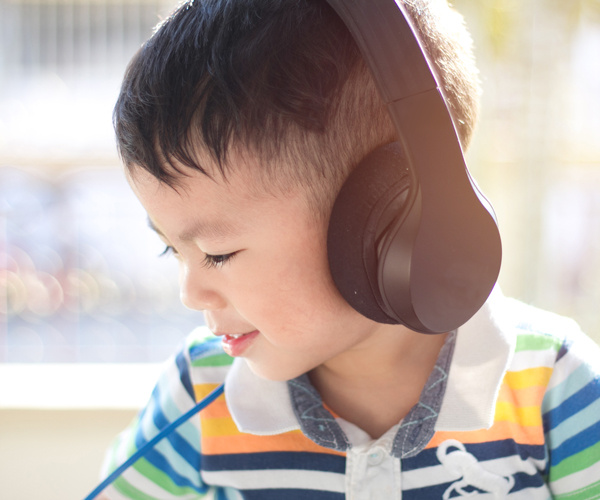
As parents and working professionals, we can often fall into the trap of thinking that being great at what you do is the key determinant of success. This could be a surgeon with the nimblest of hands, a stockbroker who makes unerring financial judgments, or even a student who knows the textbook like the back of his or her hand. But that is only half the equation, because success is also equally determined by how you get along with other people and whether they know how good you are at what you do.
We forget how the surgeon wins his patients’ trust with his friendly demeanour and clear explanations of a surgical procedure, or how the good student speaks up in class to not only show what he or she has learnt but also to ask the right questions. For the other half of the equation, good communication skills are critical for success.
The Learning Lab breaks down the three main components of good communication - speaking, writing and listening - and shows you how communication skills can help your child excel in the classroom and beyond.

Oral communication skills
Even at his or her young age, your child will already be encountering a variety of situations where oral communication skills are not only required but assessed. These include answering a teacher’s questions, asking his or her own questions, interacting with classmates or friends, and delivering a presentation. Each situation calls for a slightly different approach but a good speaker, in a nutshell, is someone who manages to capture and hold his or her desired audience’s attention, and delivers a message or request that is clear and easy to understand.
The audience need not be large, and the messages conveyed can range from factual answers to more complex arguments. For example, a child who is able to articulate his or her concerns about the lesson material clearly in turn makes it easier for the teacher to offer help and address those doubts. On the flip side, a child who struggles to communicate clearly with teachers and peers may get embarrassed and have his or her confidence affected over the long run.
The good news, however, is that confidence and fluency can both be honed through practice, something that even the best speakers do. So regardless of whether your child is outspoken or shy, the best thing you can do is to encourage him or her to start practising as often as possible. Click here to find out more about how your child can learn to speak well.

Written communication skills
The second main mode of communication employed in both school and working life is writing, one of the earliest “technologies” invented by Man. We have become so used to writing that it underpins much of how we function, communicate, and think today. For your child, writing effectively is a skill set that becomes increasingly important as he or she progresses up the levels in school and is expected to present more work in written form.
Your child will have to learn how to distinguish between what is required, for example, for a narrative composition and an expository essay, as well as for a Literature and History assignment. Effective writing is not only about writing long essays well too - the short answer questions found in the scientific subjects such as Physics, Chemistry and Biology also require students to be able to present their ideas in a clear and concise manner to obtain marks. The underlying principle to good writing is to understand who you are writing for, and to provide that audience with what they need. A child who understands a concept but is unable to convey that understanding to the teacher or marker is unfortunately no better off than a child who has no understanding at all.
The ability to write clearly and concisely is also a highly prized asset anywhere you go in the working world, because effective communication is what greases the wheels of business. You will want your child to build as strong a linguistic foundation as possible in the early going, so that he or she is well-prepared for, and can adapt to, the different kinds of writing needed in the working world, such as emails, presentation slides, and more. Here are the 5 most important rules of writing.

Listening
Being able to listen actively is an important part of communication that is sometimes underappreciated, especially by distractible children. While your child may be telling the truth when insisting that he or she is always listening in class, there is a clear distinction between just listening and listening actively. The former can be “ear in, ear out”, while the latter involves displaying signs of attentiveness, thinking through what is being said, and responding appropriately.
Active listening aids understanding and recall, saving your child time from having to go through what was being taught again later. It also helps your child ask the right questions of his or her teachers. Lastly, active listening helps build rapport between the listener and the speaker. By learning not to interrupt and to defer judgement until the speaker has finished, for example, your child picks up a skill that will continue to be relevant in the working world.

Communicating Our Education Philosophy to Our Students
Strong communication skills are useful in all walks of life, and at all ages. Practice is key for mastery, and a child who starts to lay a strong foundation early will only stand to benefit in the long run.
At The Learning Lab, we believe in moulding well-rounded learners who excel both quantitatively and qualitatively. This means we place equal emphasis on academics as we do on character and emotional development.
The Learning Lab is now at locations. Find a location that suits your needs.
If you have any questions about our range of programmes or class schedules, you may contact us at 6733 8711 or drop us an email at enquiry@thelearninglab.com.sg.
The Learning Lab is now at locations. Find a location that suits your needs.
If you have any questions about our range of programmes or class schedules, you may fill in the form below or contact us at 67338711 / enquiry@thelearninglab.com.sg.


